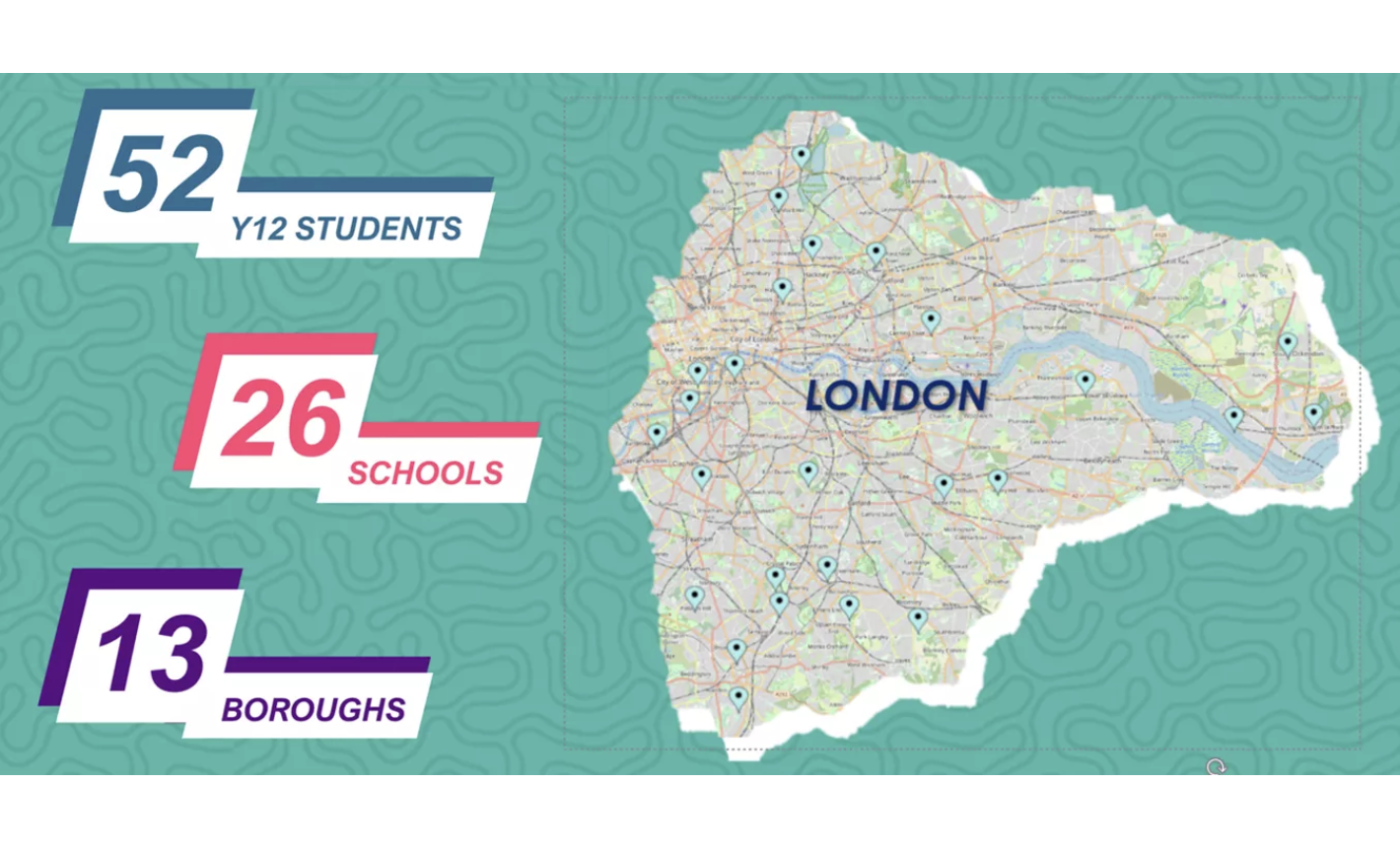
4 minute read
Developmental Neurobiology Academy
The DevNeuro Academy is a widening participation-focused Summer School for Year 12 students, hosted by the Centre for Developmental Neurobiology and the MRC Centre for Neurodevelopmental Disorders at the Institute of Psychiatry, Psychology & Neuroscience (IoPPN). KCLWP supported Dr Leigh Wilson, Public Engagement Manager and Programme Lead, from the start, offering expertise and delivering information, advice and guidance on the programme. Our relationship with Leigh helped steer the design of our WP Champions Programme. We caught up with her to hear about how DevNeuro Academy has progressed.
Can you tell me a little about yourself and what attracted you to your role?
Advertisement
My role at King’s isn’t entirely straightforward. My background is in neuroscience research, then I became more interested in science public engagement and outreach. I was magnetised to working with people, especially younger people, and to develop courses that teach science in a creative way.
The flagship programme I’ve worked on and reconceived is DevNeuro Academy. I thought it was a great opportunity to develop a bigger WP-based programmes within neuroscience. It’s existed for seven years, starting off as a small programme working with 12-15 students in three WP-based schools in the local area, and now we work with 52 students in 26 schools from 13 London boroughs.

What impact do you want the DevNeuro Academy to have?
I want it to reach out to London communities. It’s not just local to King’s, it’s spread out over 13 boroughs, opening the opportunity to schools that have low progression to university, encouraging those pupils that are interested to feel as though they have access to Russell Group universities. That’s one of the big impacts I’d like to seeincreased applications to King’s from those would never have thought about applying.
What has the programme taught you?
I think it’s taught me how to get people on board, how to introduce a culture amongst academics who are not used to doing outreach and introduce a real culture of WP, showing the two-way benefits. It’s taught me a lot about how young people think, and to never make assumptions about what they’re thinking, what they’re interested in, what drives them, what backgrounds they come from.
What are you planning on doing next with DevNeuro Academy?
It’s my second year of face-to-face in July. I want to know every student’s name by the end of the week and for them to know each other’s. This year, we’re going to base our selection entirely on WP criteria. I’d really like to make some partnerships with local schools and select a certain percentage based on neurodiverse criteria. I’d love to expand it - students are interested in neuroscience and getting experience in research centres which is virtually impossible when you’re a 17-year-old.
I want to introduce more people to the joy of creating unlikely relationships.
How has it been working with KCLWP?
Being a WP Champion means KCLWP have helped me figure out the programme as I go along which has been an interesting process in itself. I hope that what we’re doing with DevNeuro Academy is forming a really good template for other departments. It’s been a lovely process working with the team –I’m really grateful for that.










